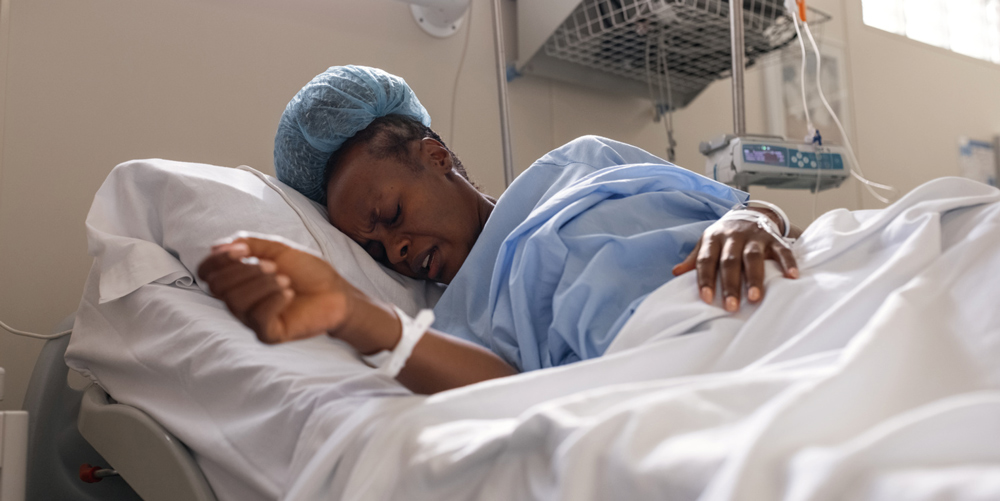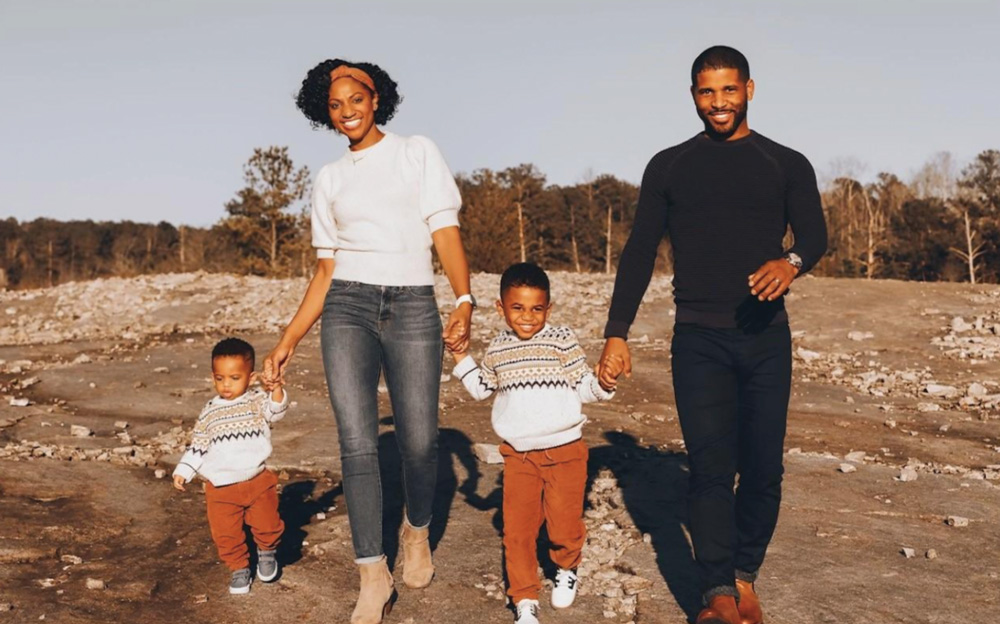




But, despite an hour-long plea for pain medication during the delivery, the mother said her cries were ignored.
Cole a nurse anesthetist did not intend to have a natural birth that day. She had experienced “a precipitous labor” with her first son, Carter, delivering the child after pushing for less than 30 minutes, she said in a recent interview. After that experience, the OB physician who delivered her first son recommended she arrive at the hospital early if she was ever pregnant again and inform the medical staff that she would deliver quickly.
On the day Caiden entered the world, Cole’s sister, JaNean Jones—a labor and delivery nurse for over 25—years checked to see how much Cole was dilated before she headed to the hospital. Jones discovered Cole was already at four centimeters and in the active stage of labor.
Upon arriving at the hospital, Cole said, she immediately asked for pain medication. But instead of granting her request, the nursing staff (training a new nurse) focused on trying to get the baby on the monitor. They checked Cole’s progress and realized then that Caiden was already in the birth canal, and it was time to start pushing. Cole said the medical staff rushed her down the hallway to the delivery room as she begged for medication to dull the pain and anxiety.
“The hospital OB physician said, ‘Listen, the baby will be here in no time, just push through it,’” said Cole, recounting the day’s traumatic turn of events. “I said, ‘I see the nitrous right there. Can I please have it?’”
However, according to Cole, the medical staff would not comply. She found out later they had given her a dose of fentanyl, but her pain was so great it had no effect.
“I don’t even remember the OB physician’s name because she was not my OB; however, after my birthing experience, I prayed for her. I felt as though it was inhumane,” Cole said. “Giving birth is such an intimate and vulnerable experience that I felt almost as if my vulnerability was exploited.”

“Research has also found that many health care providers feel that black women are stronger and can handle pain much more than any other group of people,” said LaShawn Horton, another one of Cole’s sisters, a former OB nurse and current nursing professor at Southern Adventist University in Collegedale, Tennessee. “Oftentimes, their cry for pain medication and treatment or care when they feel that something is wrong will go unheard.”
Though Cole delivered a healthy baby boy the day she was denied the medication, the mistreatment of black pregnant mothers by health professionals can lead to complications and even death during delivery. According to researchers, racism is a significant factor in how maternal care is administered in the United States. As stated by the Center for American Progress, it affects the risks mothers may experience throughout pregnancy, including medical conditions such as high blood pressure, eclampsia, blood vessel obstructions, and mental health disparities.
The National Partnership for Women and Families reported that black women are more likely to face mortality from pregnancy or childbirth than women of any other race. Black women are also “Three to four times more likely to experience pregnancy-related death than white women.”
In addition, the infant mortality rate for black babies is double that of white babies, and black Americans face the highest infant mortality rate of all races and ethnic groups in the United States, according to the Center for American Progress report.
These alarming statistics demonstrate discrimination and a lack of care toward women of color. As stated in an article published by the American Heart Association, there is no biological difference among races; the difference in these statistics is racism.
Cole and her husband, David, a surgical resident at the time of Caiden’s birth, are both highly trained health professionals. They knew Cole was not receiving proper care during and after the delivery and complained to hospital personnel.
- Research the effects of racism on maternity and infant care and be aware of the potential risks that might be encountered throughout pregnancy.
- Monitor the mother’s blood pressure throughout pregnancy to be aware of her risks for hypertension and pre-eclampsia, a life-threatening blood pressure condition that can develop during pregnancy, and talk to your healthcare providers about any concerns.
- Participate in group prenatal visits, such as the ones provided by CenteringPregnancy, which enables midwives to provide women with pregnancy and birth-related information in a group setting. Such group visits can provide a sense of community for those who need it, even specifically targeting women of color who may appreciate support from those of a similar background.
- Consider what might be the best option for a birth plan and who should be in attendance at the birth. Support from family members, friends, and/or a doula may help to make the mother feel more at ease. It may also be beneficial to attend a birthing class to learn more about the options that may be available during delivery.
After the traumatic experience, Cole was afraid to have another child and thought she could not endure another pregnancy, but she got pregnant again in 2021.
“It was only through God that we had another one because I was set on never having another child again just because that experience was just so awful,” she said.
As Cole prepared for the birth of her third son, Carson, she experienced nightmares due to PTSD from her second delivery. She was afraid she wouldn’t receive pain medication during the birth.
“I was so nervous and so anxious because of my previous experience the entire time,” Cole said. “All I could think of was, ‘Lord, please let me make it to the hospital. Jesus, please, I need an epidural. I can’t have the same experience. Please, Lord.’ I recited that prayer over and over again.”
For her third delivery, Cole went to the hospital where her husband, David, is on staff and with which his practice is affiliated. Her sister, JaNean, also worked there as a delivery nurse and assisted the OB physician who delivered the baby.
That time, Cole received an epidural, and the delivery went well. Her third son, Carson, was born on March 30, 2022.
“I am happy and thankful that God has given us three healthy boys,” she said recently. “It’s something I don’t take for granted.”